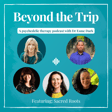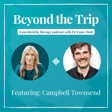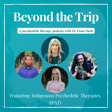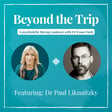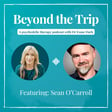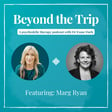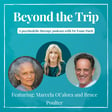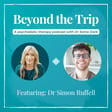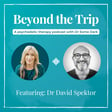
Dr Bill Richards: Psychedelic Therapy and Sacred Knowledge
In this episode I interview Dr Bill Richards, who is a true pioneer in the psychedelic research space and has been involved in this work from the original research that took place in the 60s up until the present day. He is someone who I deeply respect and whose work has been very influential on me. His combination of rigorous research skills and deep reverence for the sacredness of these medicines is something that I feel is extremely important for this field.
William A. Richards (Bill) is a Senior Advisor at Sunstone Therapies and a psychologist in the Center for Psychedelic and Consciousness Research at the Johns Hopkins School of Medicine, he has been involved in psychedelic research since 1963. From 1967 to 1977, he implemented projects with LSD, DPT, MDA and psilocybin at the Maryland Psychiatric Research Center, including protocols designed to investigate the promise of psychedelics in the treatment of alcoholism, depression, narcotic addiction and the psychological distress associated with terminal cancer. He is one of the leaders in the field at training mental health professionals to work in this space. His book, Sacred Knowledge: Psychedelics and Religious Experiences, published by Columbia University Press has been translated into multiple languages.
We discuss the beginnings of his work in psychedelic therapy research, key components of psychedelic therapy, the importance of the therapeutic relationship, the BEING of the therapist, therapeutic intuition, mystical experiences, coming to terms with death and the importance of presence in life.
You can find his book here:- https://www.amazon.com.au/Sacred-Knowledge-Psychedelics-Religious-Experiences/dp/0231174063
Follow this link to listen to the podcast I mentioned with Roland Griffiths https://podcasts.apple.com/us/podcast/641-roland-griffiths-phd-lifes-ultimate-glide-path/id863897795?i=1000589513556
I really hope you enjoy this episode, if you do please subscribe and leave a review to help get this important conversation out to more people.
Find out more about my upcoming offerings by joining my mailing list at https://www.esmedarkpsychology.com.au/and stay in touch on Instagram @dresmedark
find out more about the Clinical Psychedelic Lab at Monash University on the link below
www.monash.edu/medicine/scs/clinical-psychedelic-lab
This podcast is for general information only and does not constitute an endorsement or recommendation for psychedelic-assisted psychotherapy.

